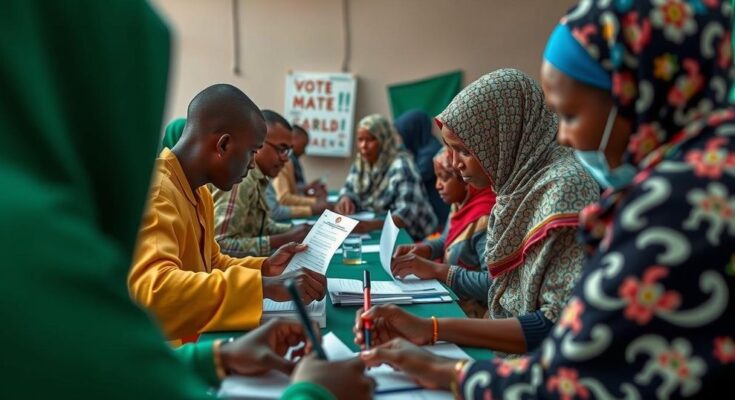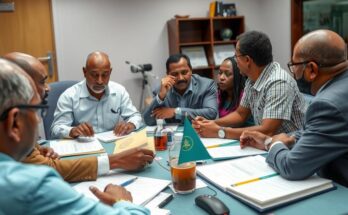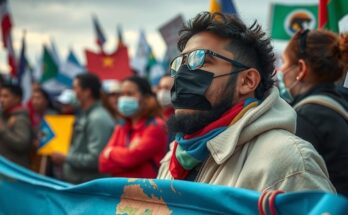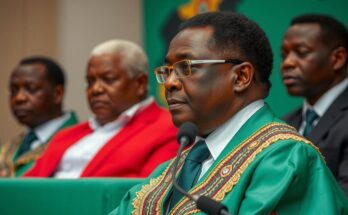Somaliland successfully conducted presidential elections, with polls closing peacefully and over one million registered voters participating. The NEC commenced vote counting and aims to announce results by November 21. The elections featured three candidates, including incumbent Muse Bihi Abdi, amidst ongoing tensions with Somalia regarding Ethiopia’s lease of coastal access. The electoral process reflects Somaliland’s desire for stability and international recognition.
The Somaliland National Electoral Commission (NEC) reported a successful conclusion to the presidential elections held across the region, with polls closing on Wednesday at 6 p.m. local time. Voter turnout exceeded one million individuals across approximately 2,000 polling stations. Vote counting commenced promptly, with NEC Chairman Muse Hassan Yusuf stating that results would be announced by November 21. The elections were regarded as peaceful, with no incidents reported during the process. Three candidates contested the election, including the incumbent, President Muse Bihi Abdi of the Kulmiye party, who ran against Abdirahman Mohamed Abdullahi, known as “Irro” of the Waddani party, and Faisal Ali Warabe from the Justice and Development Party. Each candidate expressed their commitment to advancing democracy and the economy while highlighting the importance of seeking international recognition for Somaliland. The election marks the fourth presidential contest since Somaliland declared independence from Somalia in 1991, a claim that remains unrecognized internationally despite the region’s stable governance and democratic institutions. Tensions have been escalating between Somalia and Ethiopia in light of a controversial agreement granting Ethiopia a long-term lease on a section of Somaliland’s coastline, which Somalia views as a breach of its sovereignty. Previous diplomatic efforts to address the situation have faltered, with accusations of interference and demands for withdrawal made by the Somali government. The Somali Defense Minister recently reiterated this stance, voicing opposition to Ethiopian troop involvement in the upcoming African Union peacekeeping mission.
The presidential elections in Somaliland are significant as they represent the region’s ongoing quest for recognition and democratic stability following its unilateral declaration of independence from Somalia in 1991. Over the years, Somaliland has established effective governmental structures, a functioning economy, and a political system that facilitates regular electoral processes. The presence of multiple political parties reflecting a competitive political landscape has allowed for regular transitions of power. However, the geopolitical tension with Somalia and the engagement with Ethiopia complicates Somaliland’s aspirations for international acknowledgment.
In summary, the recent presidential elections in Somaliland proceeded without incident, marking a critical moment in the region’s ongoing political evolution. While candidates emphasized growth and international recognition, external factors, notably tensions with Somalia and the Ethiopian agreement, pose significant challenges. The NEC’s commitment to a transparent vote count and the absence of electoral irregularities promote confidence in Somaliland’s democratic processes, yet the quest for international recognition remains crucial for the region’s future.
Original Source: www.voanews.com




